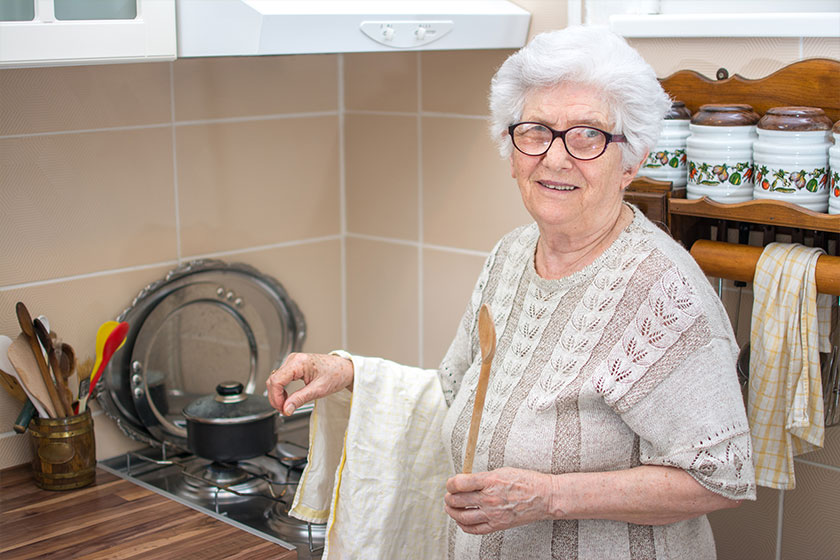Whether your parents are avid home chefs or cook every once in a while, it is important to ensure safety in the kitchen at all times. The kitchen can be an extremely dangerous place for everyone as there are numerous objects and obstacles that may harm them. Tools, appliances, and even foods can pose threats to your loved ones if they are not careful. Read on to find out more about safe cooking tips for your aging parents.
Never Leave Food Unattended
Remind your loved ones to never leave their cooking unattended, even for a short time. Any food that is being cooked must be watched at all times to ensure safety. According to the U.S. Fire Administration, cooking was the leading cause of residential fires (2017 – 2019). If they need to leave the kitchen to answer a call or attend to an urgent matter, they need to turn off the stove and stop all cooking at once.
Use an Oven Mitt
Oven mitts are used not only used when baking but also when holding any other cookware such as pots and pans. To prevent burns, encourage your loved ones to use oven mitts whenever they need to hold or touch any hot pots, pans, or stovetop grills.
Automatic Shut-Off
Nowadays, many kitchen appliances come with automatic shut-off functions to prevent fires. Whenever possible, try to purchase automatic shut-off appliances such as toasters and electric kettles. This ensures that hot appliances do not remain hot for extended periods of time if your loved ones forget to turn them off.
Heavier Items at Hip Level
The safest level to place heavy and bulky items is at the hip level. This prevents them from straining themselves if they need to lift those items, such as a heavy stock pot.
Test Smoke Detectors Regularly
Smoke detectors should be tested every month to ensure that they are working fine. This is especially crucial for homes with aging loved ones who cook.
Prevent Cross-Contamination
Safe cooking doesn’t just start from the stove. Ensure that all items in the refrigerator such as meats, eggs, fruits, and vegetables are properly stored to prevent cross-contamination. For example, raw meat and poultry should be placed on the lowest shelf where any possible juices are unable to drip onto other foods. Always separate cooked food from raw food and make sure that the refrigerator is always at the correct temperature.
Sharp but Not Too Sharp
All knives should be sharp enough to cut safely without requiring too much effort, but not too sharp that they pose a threat to the slightest touch. Check their knives regularly to ensure that they are safe for use.
Leftovers
Sometimes, your loved ones may not finish their food in one serving and will keep leftovers. When unsure about any leftovers, encourage them to discard them. This helps prevent food-borne illnesses which can be detrimental to your loved ones’ health.
Reduce Clutter
To prevent accidents such as slipping or falling, try to reduce clutter in the kitchen. Place items on the kitchen table or counter separately from one another to prevent them from accidentally knocking things over. Preventing accidents is essential, especially for aging loved ones who live alone, as there may not be anyone around to help them.







